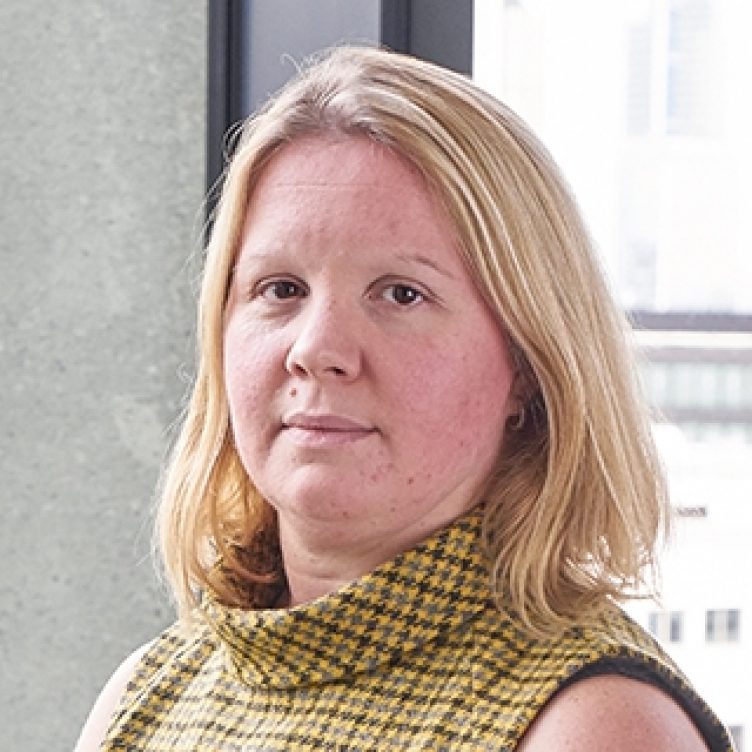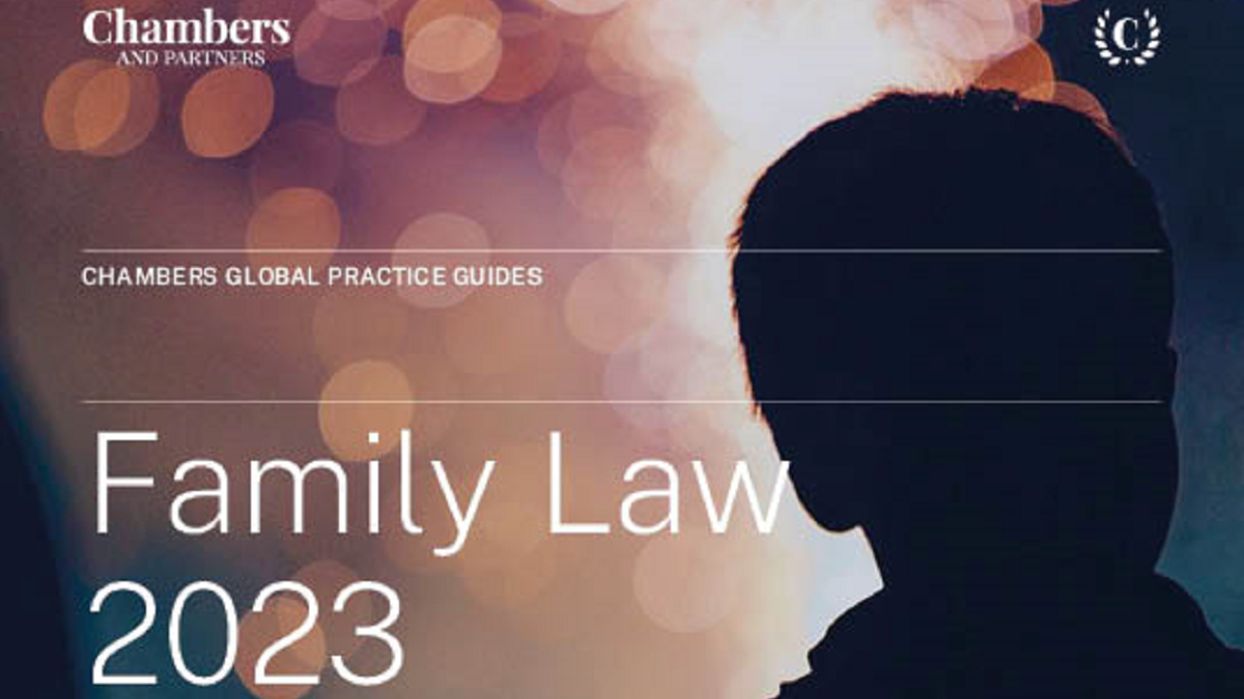Can the appointment of a female social worker infringe on a person’s human rights? The Court of Appeal considered this question in an appeal against a case management order in private law proceedings under the Children Act 1989.
Senior paralegal James Fox considers the Court of Appeal judgment in N (A Child), Re (Instruction of Expert) [2022] EWCA Civ 1588.
Background
Both parents were raised as members of the Hassidic Haredi Orthodox Jewish community, the father in the United States of America and the mother in England. In 2013, they underwent an arranged marriage in Jerusalem and then lived together in Israel. In November 2014, the mother gave birth to a child (‘A’).
The mother described her life in the community in Israel and the father’s strict religious observances. She said she found her life with the father intolerable and gave examples of his discomfort in the presence of women, including, in some contexts, herself.
Separation agreement
The parties separated in February 2016, and in March 2017, the Jerusalem District Rabbinical Court finalised and approved a separation agreement.
Under the terms of the agreement, the parties agreed both parents should decide jointly and co-operate on which schools A attends, on all educational matters and on the care of the A.
They agreed that they may only take A to places “acceptable to the Hassidic community, and suitable to the education institutions at which he learns”, and further that the mother “shall have permanent custody of the boy” and that she “may reside in Israel or overseas, at her sole choice”. The agreement contained detailed provisions for contact, including overnight staying and holiday contact.
Relocation of the mother and A
In October 2018, the mother and A returned to England, where they initially lived in the Hassidic Haredi community in north London. In autumn 2019, without informing the father, the mother moved with A to another area of north London with a significant Jewish population but fewer connections with the Hassidic Haredi community. At the same time, the mother informed the rabbi acting as a mediator between the parties that she wanted to move A to a different school. The father did not consent to this proposal, but the mother moved A to another school regardless.
In the summer of 2021, the mother and A moved home again to an area just outside London. The father said that he had not had notice of this move and contended that the area did not comply with the terms of the separation agreement. The mother proposed that A should move school again to a different school closer to their new home.
Child arrangements order and assessment by social worker
In January 2022, the father applied for child arrangements and prohibited steps orders under section 8 of the Children Act 1989, seeking a defined order for contact, including staying in contact, and an order preventing the mother from changing A’s school. In February 2022, the court made an interim prohibited steps order preventing the mother from moving A to a different school until further order of the court.
In response, the mother filed an application seeking a specific issue order that she be permitted to transfer A to a school closer to her current home. The next day, the court gave case management directions regarding the two applications before the court.
In March 2022, a Cafcass (Children and Family Court Advisory and Support Service) officer sent a safeguarding letter to the court, having had telephone conversations with both parties. The Cafcass officer noted that the mother said she “felt that all aspects of her life had been controlled… She identifies that she experienced domestic abuse in the form of religious control and believes the father’s application is motivated by this same desire to control her. Her experiences in Israel had been traumatic and she sought therapeutic support after.”
The Cafcass officer recommended that there be a further assessment by way of a report under section 7 of the Children Act 1989 to be completed by Cafcass addressing the following matters:
- whether either party posed a risk to A
- the impact of the concerns raised about domestic abuse and mental health
- recommendations for arrangements for A to be able to spend time with his father
- the impact of a change of school on A in terms of his emotional wellbeing and identity
- A’s wishes and feelings, and
- any other matter considered relevant to A’s welfare.
The father applied under Part 25 of the Family Procedure Rules for the court’s approval to the appointment of an independent social worker to carry out the assessment in place of Cafcass. The expert identified in the application by the father was a female social worker. The father did not nominate any other social workers. The mother objected to this appointment, suggesting that she may be a biased choice because she was associated with Ezer lyoldos, a Charedi organisation that works strictly within the Charedi community. The mother preferred that Cafcass carry out the report “as they were more likely to offer a neutral standpoint”.
At a hearing in March 2022, the district judge accepted the mother’s suggestion that the initial approach should be made to Cafcass to enquire whether there was a family court advisor available who had the “culturally appropriate expertise”. The father’s solicitors wrote to Cafcass but made no stipulation or request at this time as to the gender of the officer assigned to the case. Cafcass replied that it had “no culturally appropriate professional able to conduct the assessment”.
The parties sourced several other independent social workers as a result. The mother put forward two other female candidates, and the father proposed the appointment of a male candidate.
The father submitted that if he wanted to have faith in the assessment, it was important he was “on board” with the identity of the assessor. The father argued it was prejudicial to his case and represented a disproportionate interference with his rights to a fair trial under Article 6 European Convention on Human Rights (ECHR) if the court sanctioned an appointment that was “doomed to fail from the outset”. The mother, who made allegations of domestic abuse, said she would feel “more comfortable” with a female social worker bearing in mind her experiences.
Judgment at first instance
The judge noted that the “father seeks to argue he would have difficulties speaking to a female social worker and also sought to argue that it would not be compliant with his Haredi tradition”. This was not something the father had previously raised.
The judge found that the father’s suggested male expert was considerably more expensive than the two female experts nominated by the mother and would take longer to report. Given that all three experts were deemed suitably qualified, the issue of cost and timeframe fell for consideration by the court. The court was satisfied that the appropriate expert to carry out the assessment should be one of the female experts identified by the mother, who was prepared to work at legal aid rates.
The appeal
The father applied for permission to appeal against the judge’s decision that the female social worker be instructed. He also applied for the judge to recuse himself on the grounds that the refusal to appoint the male social worker demonstrated that the court did not have regard to the cultural reasons for the father’s objections. The matter came before Sir Andrew McFarlane, who granted permission to appeal against the order appointing the female social worker but refused permission on the recusal issue.
The grounds of appeal were:
- in appointing the female independent social worker, the court failed to attach adequate weight to the father’s right to a fair hearing under Article 6,
- the appointment of the male social worker made no difference to the court timetable, and
- in appointing the female independent social worker, the court had failed to attach adequate weight to his right to his religious and cultural beliefs under Article 9 ECHR (which protects the right to freedom of thought, belief and religion).
The decision
The Court of Appeal dismissed the father’s appeal.
The court concluded that the judge was fully entitled to reject the father’s human rights arguments. There had been no mention of an infringement of Article 9 in the documents prepared for the hearing, nor at the hearing itself. There was similarly no evidence from the father to support his assertion that the appointment of a female social worker would infringe upon his rights under Article 6. Ironically, the father’s arguments were undermined and contradicted by his actions during the case. He had dealings with several female professionals during the proceedings and was represented in the matter by a female solicitor.
Notably, the court did not rule out the possibility that such an order specifying an expert of a particular gender could be justified but that it would depend heavily on the circumstances. The court said any application asking for an expert to be a specified gender must be clearly explained and fully supported by evidence.
Partner Carly Kinch comments:
“The court makes it clear in this case that where a party wishes to rely on a cultural objection to a decision made in the proceedings, that party must by their conduct and by way of detailed evidence be able to properly explain and support their position. The court it seems will take a considered approach in any future cases where such issues arise but parties must be conscious to ensure that their own conduct does not undermine the evidence they adduce in support of any cultural objections they raise. ”
You can find further information regarding our expertise, experience and team on our Divorce and Family pages.
If you require assistance from our team, please contact us or alternatively request a call back from one of our lawyers by submitting this form.
Subscribe – In order to receive our news straight to your inbox, subscribe here. Our newsletters are sent no more than once a month.






